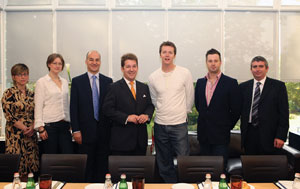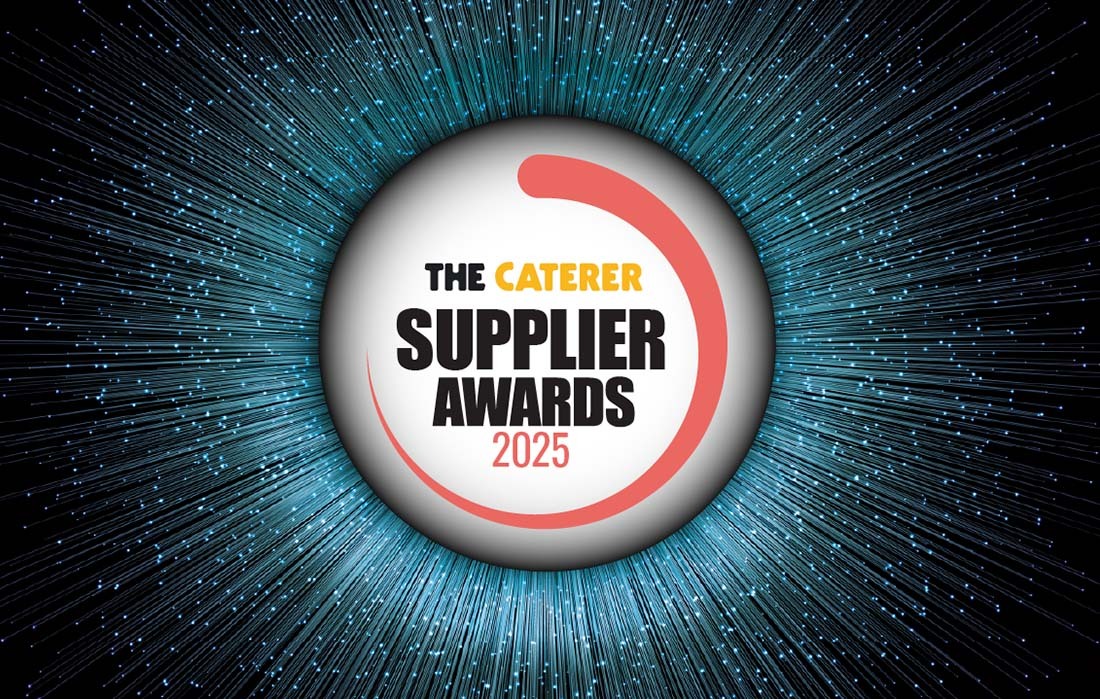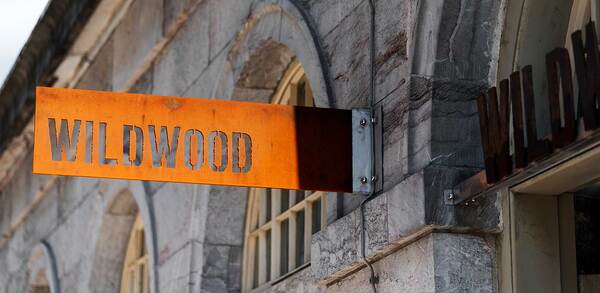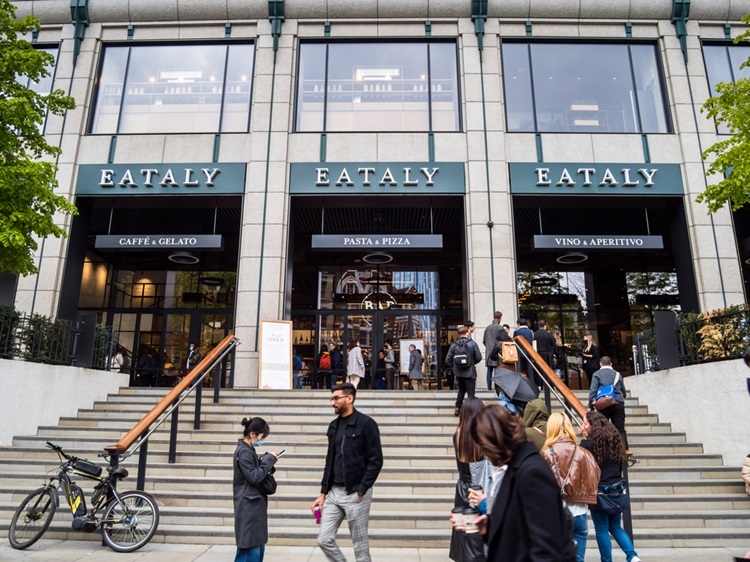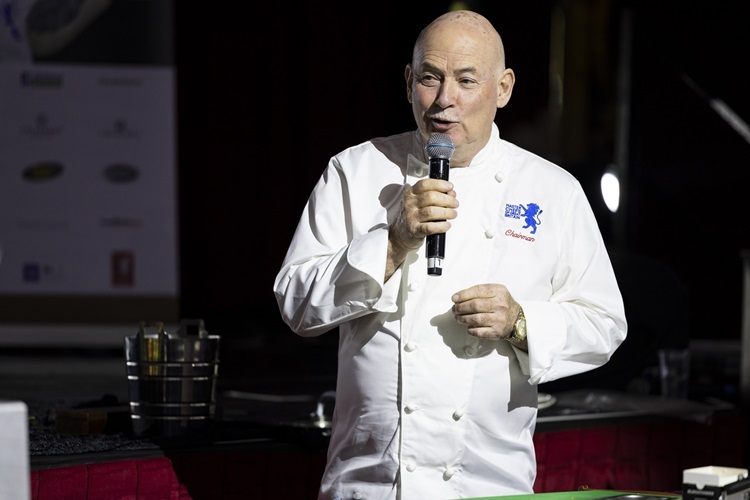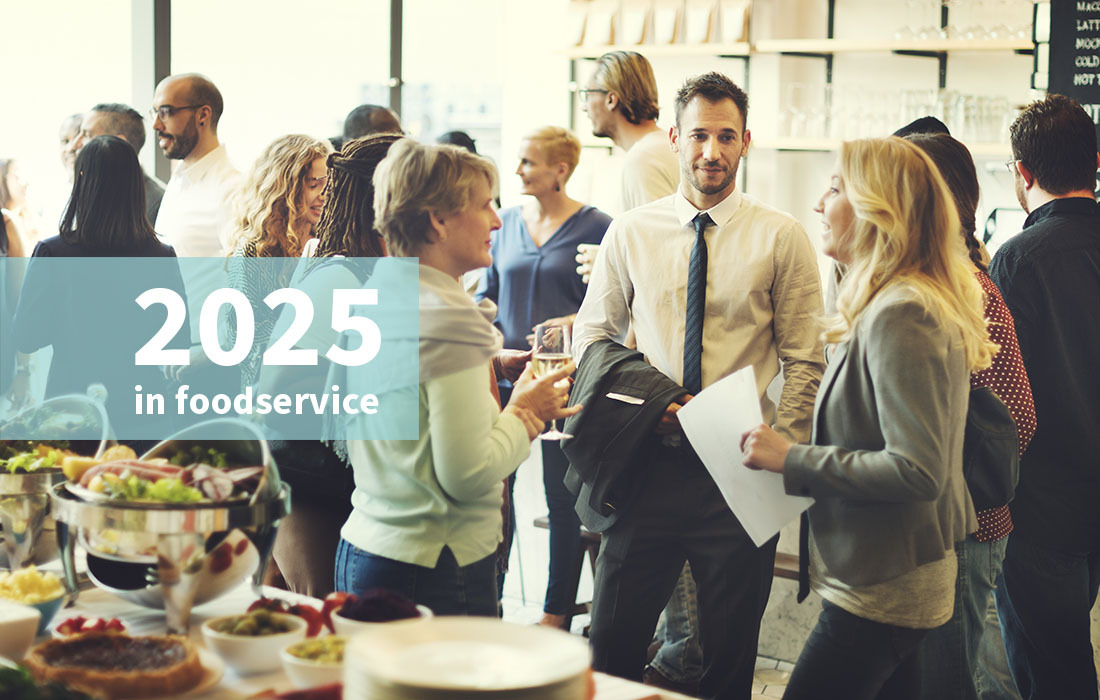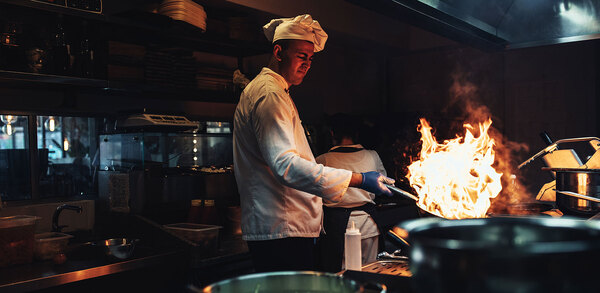The benefits of sustainability – a round-table discussion
In response to growing pressures on hospitality operators to conduct their businesses sustainably, Caterer, in conjunction with 3663 First for Foodservice, invited some passionate supporters of the cause to a round-table discussion on the necessity and benefits of working in a more environmentally friendly manner
Sustainability is the key buzz word used to describe how we're all expected to live and work in our increasingly fragile world. But what exactly does it mean to everyone?
At a round-table discussion held at the Jumeirah Carlton Tower hotel, London, last month and sponsored by 3663 First for Foodservice, panellists were initially asked what it meant to them. For Paul Brackley, general manager of the Crowne Plaza London - The City, sustainability is "working in a way that neutralises our impact on the environment."
For Arthur Potts Dawson, co-founder and executive head chef of one of London's most eco-friendly restaurants - Acorn House in King's Cross and sister restaurant the Water House, opening soon in Hoxton, north London [read article here] - it means "the human condition acting in a harmonious way, without creating anything negative around us", while Des Bell, marketing director of 3663 First for Foodservice, believes: "Sustainability is about not sacrificing the future for our needs today."
What is clear is that by being sustainable we will maintain economic development at a steady level without exhausting natural resources or causing ecological damage. It involves reducing the waste we produce and energy we burn, recycling everything we're unable to use and buying food locally and seasonally.
However, it's also a complex mix of social and economic issues that sometimes can be in conflict with one another. "It's not just about no longer flying in food from around the world, as we need to analyse why it's being produced in certain countries and whether it is, in some cases, better to ship it in from abroad, rather than produce it here," said Hugh Jones, project director of the Carbon Trust.
There was a general feeling among the group that many major companies had seized on sustainability and used it as a public relations spin without actually making any practical move towards becoming more environmentally efficient. "But the PR party is over now," said Claire Lalaguna of energy advisory service Hospitable Climates. "It will no longer be something that companies just talk about. It will eventually become like equal opportunities and be something we'll all have to do."
There was uncertainty among the participants as to whether sustainability within companies should be led by the people at the top or by those at the forefront of the business. "While big organisations put together ideas for corporate responsibility, it has to be driven at the coalface by people who are dealing with waste and buying food on a day-to-day basis," said Brackley.
Lalaguna said it was important that the drive for change came from the top and was then allowed to trickle down, while Potts Dawson said that there needed to be only one cultural warrior. "If big companies take sustainability on board and act on it with true meaning then there will be change," he said.
Everyone agreed there was now huge demand and interest from hospitality operators that wanted to run their businesses in a more sustainable manner. Equally, more and more customers and guests wanted to support companies operating in a sustainable fashion. This created a need for information and support on how to run a sustainable business, as there was a huge gap in knowledge, particularly when it came to energy consumption.
Potts Dawson said he was delighted that bodies such as the Carbon Trust, Envirowise and Hospitable Climates, which were all represented at the round table, were available to give advice. "I didn't know that any of you guys existed," he said. Acorn House is an important role model - as a training restaurant it shares its beliefs with a young, local workforce on conserving energy, using biodiesel transport in London, recycling about 80% of its waste, offering its customers different portion sizes to avoid food waste, and buying seasonal ingredients from small, independent suppliers. Potts Dawson suggested that, in the long run, his restaurant might be able to facilitate other people taking action.
During their three-year training course, chefs gain experience outside Acorn House by going on stages to other restaurant kitchens. "Unfortunately they often come back with stories of seeing so much waste," said Potts Dawson, who said it was important to train a new breed of chefs and to get them to understand the importance of sustainability. "These young people may then go into a kitchen where the older head chef might appear to be set in his ways and a hard nut to crack, but he won't be stupid. Faced with a young upstart who suggests that waste food is composted, he might initially dismiss the idea. However, the seed will be planted and he might think about composting at a later date. Training young people about sustainability is therefore very valuable."
Everyone around the table had tales to tell of the wasteful use of resources by restaurants and hotels. Matthew-Rowland-Jones, business development manager at Envirowise, highlighted the enormous amount of water wasted by chefs defrosting meat under running water. He also recounted an example of an audit that Envirowise had carried out on a hotel where the chambermaids had been trained to flush toilets in en suite bathrooms four times during the daily cleaning process, while some buildings had automatic flushes on toilets every half an hour. "TVs on stand-by are another common problem too," he said.
Amy Robinson, sustainability manager at pioneering eco-restaurant Bordeaux Quay in Bristol, which is continually working on ways to reduce its carbon footprint, recalled a recent stay at a hotel. "When I arrived in my room it took five minutes for me to turn off 14 different lights, all of which were on different switches," she said.
For Stewart Clarke, sous development chef at caterer Harbour & Jones, gantry lights on hot counters left on for long periods are an ongoing problem. "So much energy can be wasted here as they involve 6kW of light blazing out at any one time," he said.
The participants agreed that many function rooms, such as the one in which they were sitting, typically used an excessive amount of energy in order to satisfy customer expectations. "It's very relevant that we're sitting here talking about sustainability in a room with the blinds down, the lights on, the air-conditioning turned to high, and lots of food on the table," said Lalaguna.
"The cost of energy is certainly a huge issue for hotels," said Brackley, who before his current position was resident manager and then general manager at Crowne Plaza London - St James, which won the Considerate Hotel of the Year award in 2005 and 2006 and Environmentally Friendly Hotel of the Year in 2005 in the Considerate Hoteliers annual awards. "Energy management in hotels is extremely important. No large hotel should be without a building energy manager to ensure maximum savings are made. For instance, everything can be put on a timer to optimise energy and huge savings can be made by installing aerators on bathroom taps," Brackley added.
It was agreed that nowadays hotel guests and restaurant customers would accept ways to save energy. "They understand if corridor lighting is dimmed after a certain time," said Brackley. "And they love the fact that we offer them the choice of a transfer to the airport in a conventional vehicle or an environmentally friendly one run by the company Green Tomato Cars."
While everyone at the table supported sustainable practices, it was agreed that they had to be workable. "Packaging, for instance, is a major problem," said Clarke. "Cornstarch bags [used in place of plastic bags] don't always work as hot food can fall out the bottom. We want the green products, but they have to be able to perform."
Linen has proved to something of a problem at Bordeaux Quay. "We selected organic cotton tablecloths and napkins and found a small, local family laundry which is very committed to environmental issues," said Robinson. "But one year on we've had to abandon the organic linen as it's not sturdy enough and has worn through. Even though we've resorted to some darning and cutting the tablecoths down, we're now trying to find an environmentally friendly polyester-cotton blend fabric."
Dealing with waste occupies a lot of time for hoteliers and restaurateurs. Potts Dawson said he had been helped by two organisations - Enhance, a support service for green enterprises which helps businesses reduce waste, reuse resources and work with recycled materials, and Aardvark Recycling, which helps deliver cutting-edge recycling in Lambeth.
"Some chefs might take their staff on a culinary trip to Italy, but I'm more likely to take my brigade to a waste disposal unit in Lewisham," said Potts Dawson. "There will probably eventually be a landfill tax and the cost of getting rid of rubbish will skyrocket. Some chefs will then be forced out of business because they won't be able to afford their waste bills."
Brackley and Robinson agreed that using plastic bags was a good way of reducing the amount of waste being disposed of. "Some people find it hard to change their mind-set," said Robinson. "But once we switched to plastic bags, the problem of sending too much waste to landfill sites was gone within a week - people quickly changed their behaviour and started to recycle more." Bordeaux Quay works with its suppliers to reduce packaging, and recycles paper, cardboard, glass, tins, plastic bottles, wood, polystyrene and frying oil.
Everyone was keen to impart the message that being green is good for the bottom line. While it was recognised that there may be some costs to working in a sustainable manner in the short term, in the long run there were financial savings and increased profits to be made. "Our overriding message is a green one, but our approach to business is always commercial," said Potts Dawson. "You can be both sustainable and economic."
Lalaguna advises that companies that take on sustainability will succeed in a big way. "Those not efficient in terms of food, energy and waste will fail," she warned.
Potts Dawson summed up the views of the panel when he said that the UK had instigated the Industrial Revolution 200 years ago which started the mass use of carbon fuels such as wood, coal and oil. "Now we've got to recognise our mistakes and come up with a new green revolution which we need to present to the rest of the world," he added.
Don't plunder the present - build for the future
Sustainability is an integral part of our business and it's important for us to work with people who care about the environment and want to minimise the impact of our industry.
To a large extent sustainability is still seen as "doing good". However, this shouldn't be the case - it needs to be standard practice. There will come a point where we have to ask suppliers the question: "Are you managing your business in a way that puts people, product and environment in the forefront of strategy and decision-making?' In the future, we will be looking to do business with people who share our values in this area. We urge others in the industry to do the same.
At 3663 we don't plunder the present, we build for the future. Each business that joined the debate shares our overall goal of building a sustainable industry, whether it's through the practices they keep in their establishment, or the advice they offer as a service to other businesses.
Sustainability has been at the heart of our business for more than 12 years. At 3663 we've rolled out two major sustainability initiatives: a more efficient refrigeration system on our trucks that saves more than 12,000 tonnes of CO2 per year - the equivalent amount of CO2 produced by 7,689 passengers flying return between London and New York - and a scheme that collects our customers' and some suppliers' waste oil and turns it into biodiesel for our trucks.
Couple these with our efficient waste management systems, ISO14001 accreditation and support for local growers. We're proud of our achievements so far and want to share our knowledge and experience with the industry.
Des Bell, marketing director, 3663, First for Foodservice
Taking part…
Panel, from left
Claire Lalaguna, PR manager, Hospitable Climates; Amy Robinson, sustainability manager, Bordeaux Quay restaurant, Bristol; Hugh Jones, project director, Carbon Trust; Paul Brackley, general manager, Crowne Plaza London - The City; Arthur Potts Dawson, chef-proprietor, Acorn House restaurant, London; Stewart Clarke, sous development chef, Harbour & Jones; Des Bell, marketing director, 3663 First for Foodservice; plus (not in picture) Matthew Rowland-Jones, business development manager, Envirowise
Help is at hand on how to become sustainable
Many restaurants, hotels and catering companies lack the knowledge and time to become truly sustainable and would benefit from the many organisations that have sprung up as a result of the increasing demand and need to run businesses more ethically and efficiently. The following bodies, all present at the round table, can provide support and advice:
• The Carbon Trust is a private company set up by the Government in response to the threat of climate change to accelerate the UK's move towards a low-carbon economy. It can make an initial free assessment of how your business uses energy, which will enable you to cut energy costs and reduce your carbon footprint.
Tel: 0800 085 2005
• Envirowise is a Government-funded programme that provides free advice on how minimising waste and reducing your environmental impact will help to increase profits.
Tel: 0800 585794
• Hospitable Climates is an energy advisory programme managed by the Institute of Hospitality. It offers all sectors of the hospitality industry a free advisory service to help reduce energy consumption.
Tel: 020 8661 4932
• Considerate Hoteliers is an association run for hoteliers by hoteliers, with the aim of guiding and advising hotels towards sustainable tourism. There are 112 members, with many others waiting to join.
3663 - reducing road miles
The Road Transport Association has identified food transport as a major contributor to road miles in the UK, accounting for a quarter of all goods vehicles on the road. Delivery vehicles travel more than 94 billion kilometres in a year and it continues to be the fastest-growing type of traffic in the UK.
Wholesale food service distributor 3663 First for Foodservice has implemented initiatives to reduce the negative impact of its delivery vehicles. These include:
- Enabling customers to consolidate the number of deliveries on to fewer trucks.
- More efficient route-planning of deliveries to optimise mileage and avoid congested routes wherever possible, minimising fuel consumption.
- Switching the 3663 fleet fuel to biodiesel. More than half is on standard diesel and biodiesel mix. A trial is under way to test the use of a 30% bio diesel/standard diesel mix that originates from recycled waste vegetable oil. This makes 3663 the only UK major food distributor to be using recycled oil.
- Refrigeration on vehicles is electrically driven across the fleet. The CO2 emissions saved are equivalent to 3,200 cars driving an average of 8,750 miles a year.
In the 1990s, 3663 set the food service benchmark for the way it placed environmental issues at the heart of business management and was the first food service company to achieve a corporate ISO 14001 Certified Environmental Management system.



